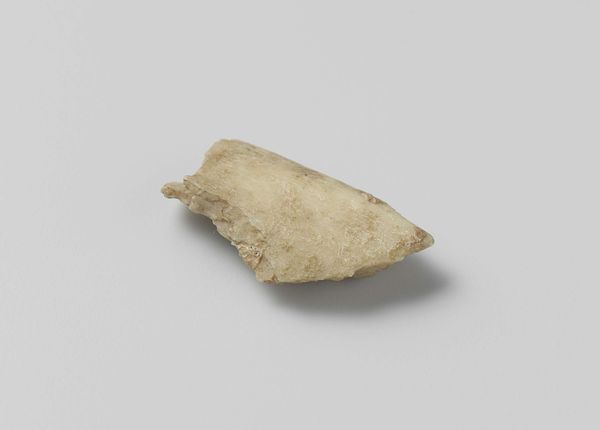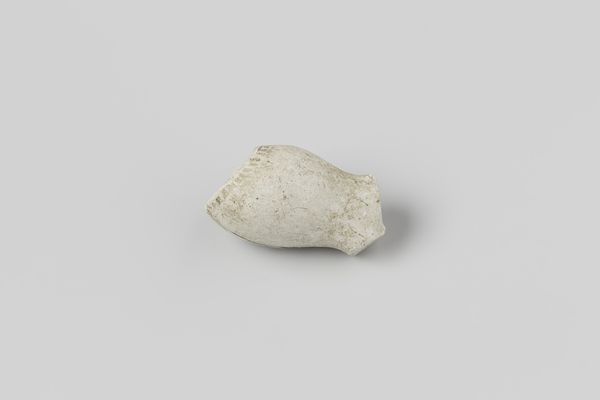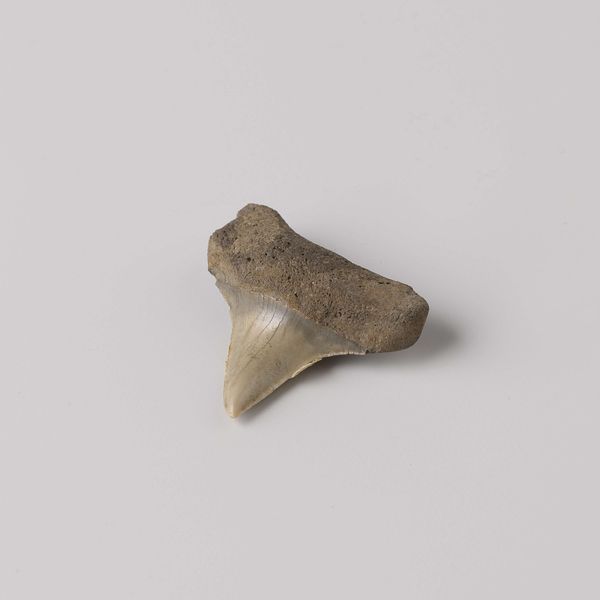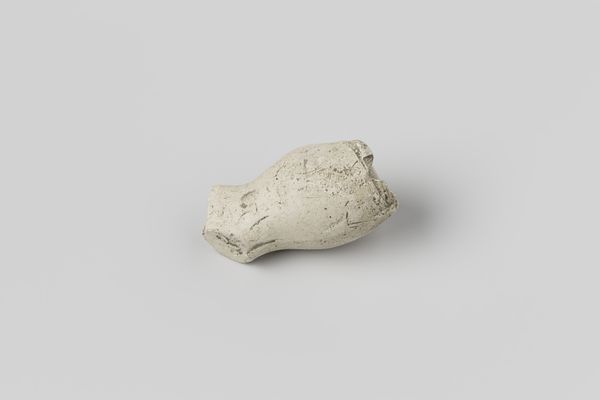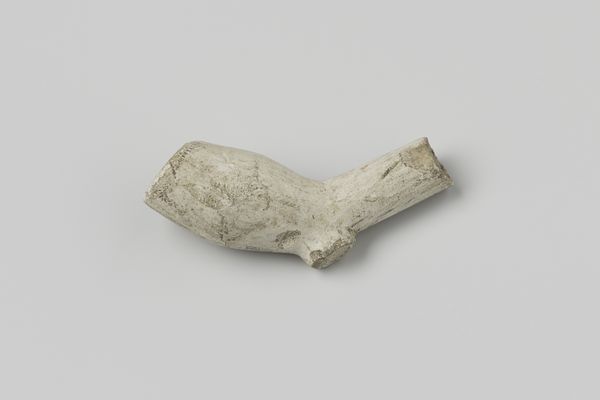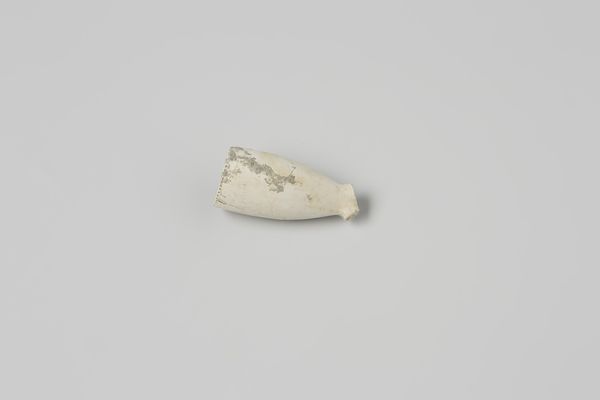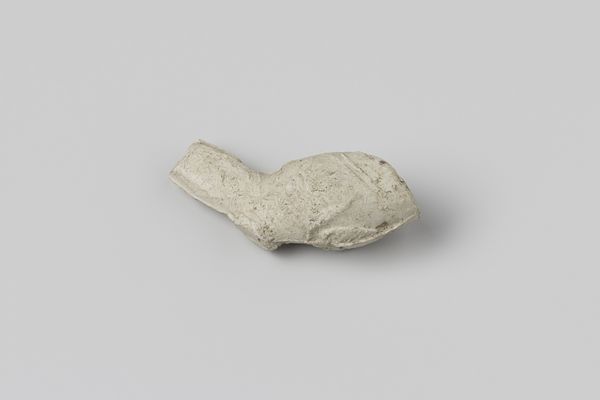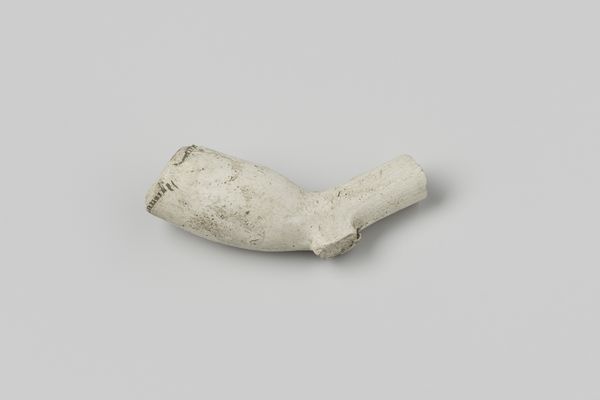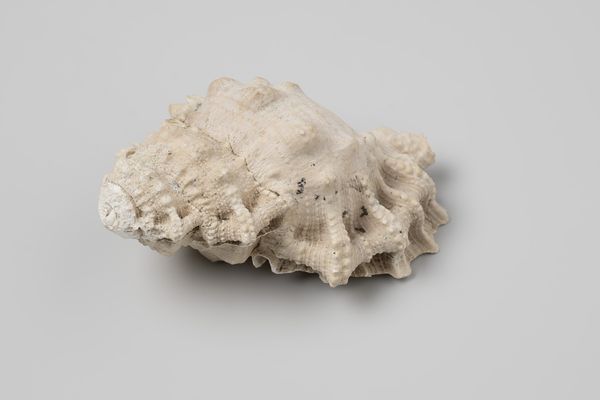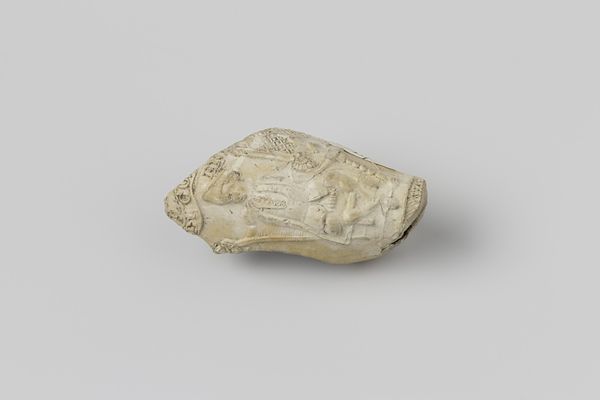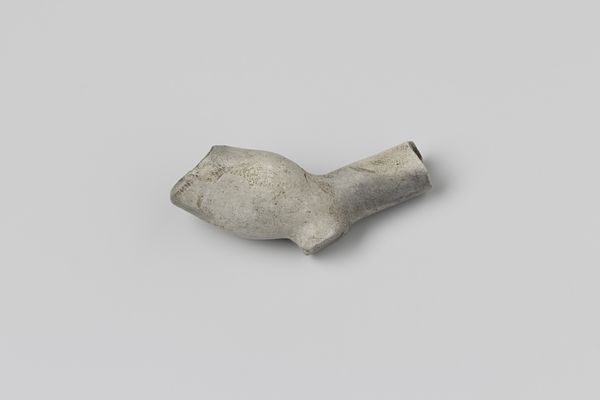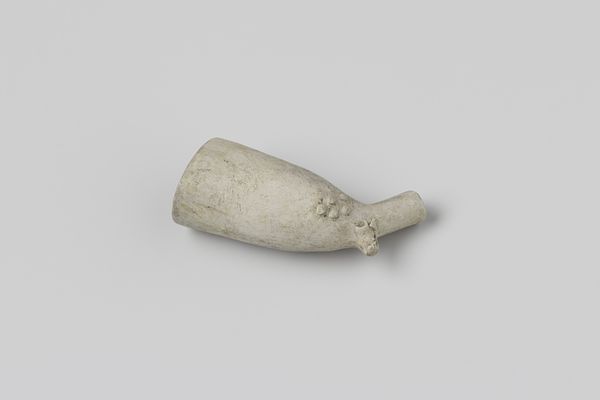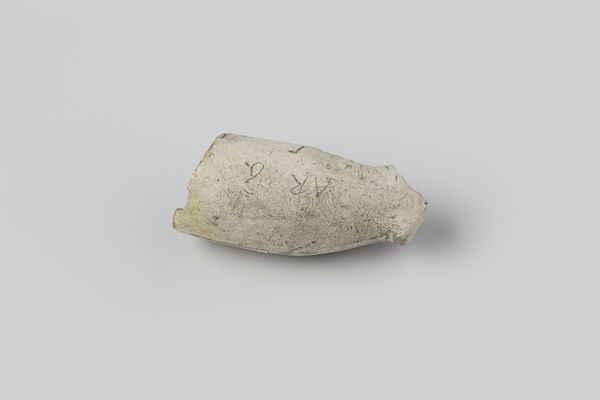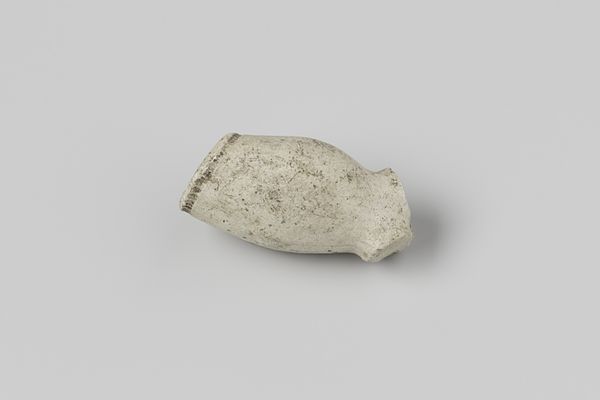
Two Pieces of Bone from the Wound in Henry Casimir I’s Hip 1612 - 1640
0:00
0:00
nietvantoepassing
Rijksmuseum
carving
#
circular oval feature
#
3d model
#
carving
#
baroque
#
3d printed part
#
rounded shape
#
virtual 3d design
#
curved arc
#
product design photgrpaphy
#
3d shape
#
metallic object render
#
product mock up
Dimensions: length 2.8 cm, width 1.9 cm
Copyright: Rijks Museum: Open Domain
Editor: Here we have, "Two Pieces of Bone from the Wound in Henry Casimir I's Hip," dating roughly from 1612 to 1640. These small, carved bone fragments feel strangely intimate, almost unsettling in their direct connection to a historical figure's suffering. What stories do you think these bones whisper about power, fragility, and the human cost of conflict? Curator: That's a powerful reaction. These bone fragments aren't just anatomical objects; they are relics imbued with the weight of history and the performance of masculinity in a period of intense upheaval. Think about the political landscape of 17th-century Europe – constant warfare, dynastic struggles. This wound, and the survival of these pieces, speaks volumes about the relationship between rulers and their physical bodies. The almost fetishistic preservation invites questions about the narratives surrounding leadership, violence, and even martyrdom. How might the display of these objects reinforce or challenge dominant power structures of the time? Editor: So, it's about controlling the narrative even around something so inherently personal as an injury? It almost feels like propaganda on a microscopic level. Curator: Precisely. The Baroque era was obsessed with spectacle and with shaping perceptions. Consider the potential audiences for these relics - were they intended for private veneration, or public display? The act of preserving these bones can be seen as an active engagement with memory and power. It begs the question: Whose story is being told, and who gets to tell it? The performative aspects of Baroque masculinity definitely demand a deeper understanding of gender, class, and cultural expectation during this tumultuous era. Editor: This makes me consider what it truly means to possess part of a person, a leader... even a fragment of them. Thank you, this was illuminating! Curator: And for me, this object demands we continue questioning the narratives of those in power. A necessary reminder in our current moment, as well.
Comments
No comments
Be the first to comment and join the conversation on the ultimate creative platform.
